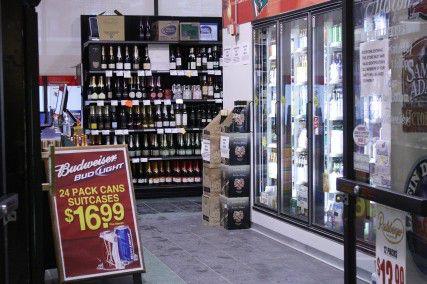
In hopes of changing the longstanding exemption of alcohol tax in Massachusetts, a 6.25 percent liquor tax on un-opened containers for off-premise consumption was proposed by City Council President Bill Linehan on Wednesday to fund substance abuse programs around Boston.
Although Linehan is pushing this home rule petition forward, it still needs to be approved by the City Council, Mayor Martin Walsh and the statehouse for implementation. A similar tax was previously instituted statewide, but was repealed through a ballot question in 2010. However, this new tax will be a local sales tax limited to the city of Boston and all the revenue will go toward substance abuse recovery programs.
“The neighborhoods in the City of Boston are experiencing the adverse effects of substance abuse and addictions which lead to an increase in crime; and, substance abuse prevention and treatment programs are important services that provide assistance to those individuals suffering from addiction,” Linehan said in the petition.
After the prior liquor tax was repealed in 2010, substance abuse recovery programs suffered from losing their main source of funding. At the same time, demand for such programs actually increased, so these programs did not properly provide for those in need of substance abuse recovery. With that in mind, Linehan started searching for another way to fund these programs.
City Councilor Michelle Wu, who presented the petition to the City Council, said she is supportive of finding another way to fund these essential programs.
“Overall it’s important for Boston to recognize that substance abuse is an issue that needs attention in every neighborhood of the city, and I think it’s important for the city to explore ways to diversify our revenue and find funding streams for programs and services for our residents,” she said.
Tim McCarthy, District 5 city councilor, said he is indecisive on this petition and wary of this tax may hurt local businesses.
“I’m very concerned for some of the establishments that have been helping our neighborhood and especially my district for so many years,” he said. “I know it does have some merits, certainly we want to make sure that some of the programming for alcohol and drug abuse is funded, and there’s a thought of this being a vehicle for that.”
McCarthy said local businesses that sell alcohol are often contributing much to local communities, and protecting them is necessary.
“I’ve been involved in youth activities my entire life, and often times ‘Joe’s Liquor Store’ or whatever is sponsoring that,” he said. “Those are the people that live in our neighborhoods and I certainly want to make sure we’re conscientious about not hurting local business … It will be a healthy debate, I’m looking forward to hearing the pros and cons and making a decision off of that.”
Some residents said it is smart to sponsor substance abuse programs through taxing a product that often leads to the need for those programs and were generally in agreement with the 6.25 percent tax on liquor.
“In that sense, many of the people using those programs will essentially be sponsoring themselves,” said Catherine Reid, 44, of Brookline. “Many people do drink responsibly, but I still think this is a logical way of funding [the programs].”
Amanda Johnson, 26, of Back Bay, said the tax is a big increase, which may upset some people, but the cause is a good one.
“[Taxing liquor by] 6.25 percent could make some alcohol significantly more expensive,” she said. “I also think that if the tax is only going to be on liquor, than it should only sponsor alcohol programs. People who are buying alcohol responsibly shouldn’t have to be funding drug addicts and such.”
Xinwei Li, 46, of the South End, said as long as the tax applies to all alcohol sales, then it would not hurt businesses.
“People won’t stop buying alcohol even when it’s taxed,” she said. “It’s a different story if only some of the liquor stores are getting taxed for some reason, but if all liquor sales are taxed then people will still have to buy from those same businesses.”
















































































































